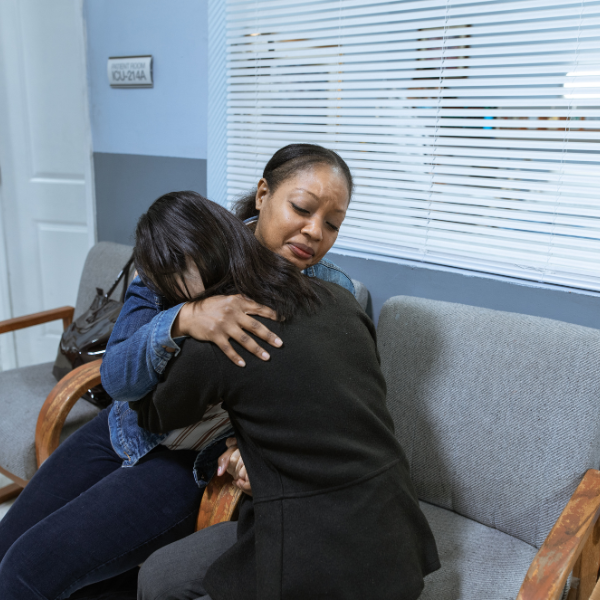- Introduction
- Brief introduction to the topic
- Why it’s important to help a friend with relationship issues
- Preview of key points
- Understanding the Situation
- Importance of listening actively
- Avoid jumping to conclusions
- Example: How listening first helped someone avoid making assumptions
- Ask questions to engage readers: “How well do you understand your friend’s feelings?”
- Offer Emotional Support, Not Judgment
- Encourage empathy, not criticism
- Avoid making the friend feel guilty or wrong
- Example: Comparing two approaches, one empathetic and one judgmental
- Question for the reader: “How can you show empathy without taking sides?”
- Know When to Give Advice and When to Hold Back
- Timing is crucial in giving advice
- Example: When offering unsolicited advice backfired
- Use lists for clear steps:
- Wait for the right moment
- Ask if they want advice
- Focus on solutions, not problems
- Avoid Taking Sides
- Importance of neutrality in relationship problems
- Example: How taking sides worsened a situation for a friend
- Paradox: “How can you support your friend without picking a side?”
- Encourage Professional Help if Necessary
- Recognizing when the problem is too big for just friendship support
- Examples of situations where professional help made a difference
- List of potential resources (counseling, therapy, etc.)
- Helping Them Build Confidence
- Boosting your friend’s self-esteem and decision-making skills
- Example: How empowering a friend led to better relationship decisions
- Conclusion
- Summarize key points
- Encourage readers to be supportive, patient, and empathetic
How to Help a Friend with Relationship Problems
Introduction
Friendship is one of the most valuable connections we have, and being there for a friend during tough times is essential. One of the hardest situations to navigate is when a close friend is dealing with relationship problems. Whether it’s a misunderstanding, conflict, or ongoing issues, knowing how to help them without making things worse can be tricky. In this article, we’ll explore practical ways to support your friend without overstepping boundaries, all while ensuring you’re a source of comfort and stability.
Understanding the Situation
The first thing to do when a friend comes to you with relationship issues is to listen. It’s easy to rush into giving advice or passing judgment, but your friend likely needs someone to hear their side of the story. Listening not only helps you understand what they’re going through, but it also gives them space to process their emotions.
For example, imagine a friend telling you about an argument they had with their partner. If you quickly jump in with advice like, “You should just break up with them,” you may miss the deeper context of the problem. Listening first can reveal that your friend simply wants someone to empathize with their frustration, not fix it.
Ask yourself: “How well do I understand my friend’s feelings before offering advice?”
Offer Emotional Support, Not Judgment
When someone is in the middle of relationship struggles, they can feel vulnerable, confused, and even ashamed. That’s why offering emotional support instead of judgment is crucial. Your friend doesn’t need to hear, “I told you so” or “Why are you still with them?” Instead, focus on being empathetic and understanding their feelings.
Imagine two responses to the same problem: One friend says, “You should know better than to put up with that,” while another says, “I can see why this is really hard for you. How do you feel about the situation?” The second response is far more likely to keep the conversation open and productive, as it allows your friend to feel heard without feeling criticized.
Question for you: “How can you show empathy without taking sides?”
Know When to Give Advice and When to Hold Back
Not every moment is the right time for advice. Sometimes, your friend might just want to vent their emotions, and giving advice too early can feel dismissive. Wait for the right time. For instance, ask your friend if they’re looking for advice or if they just want to talk things through.
Let’s look at an example: A friend was feeling lost in their relationship, but when their other friend immediately started giving advice like, “You need to do this,” it only made them feel more overwhelmed. Later, after a calmer conversation, they were ready for input and found the advice helpful.
Here are a few steps to consider:
- Wait for the right moment before offering advice.
- Ask if they want advice or just need someone to listen.
- When giving advice, focus on solutions rather than harping on the problems.
Avoid Taking Sides
As tempting as it may be to support your friend by blaming their partner, taking sides can often make the situation worse. Not only does it fuel the negativity, but it can also backfire if your friend ends up reconciling with their partner. Suddenly, you may be seen as the person who was against their relationship, which can strain your friendship.
Take the example of a friend who sided with one half of a couple in an argument. The couple reconciled, but the friend was left feeling awkward and distant because they had been overly critical of the partner. It’s always better to remain neutral and supportive without focusing too much on the flaws of one party.
Consider this paradox: “How can you support your friend without picking a side?”
Encourage Professional Help if Necessary
Sometimes, relationship issues go beyond the support friends can provide. When the problems seem deeper or more serious—such as ongoing trust issues, communication breakdowns, or emotional distress—suggesting professional help might be the best route. A trained counselor or therapist can offer guidance that goes beyond what a friend can provide.
For example, a friend dealing with trust issues may benefit from couples therapy or individual counseling, which can offer strategies to rebuild the relationship in a healthy way. It’s important to frame this suggestion gently, such as, “Have you thought about talking to someone who can help you work through this?”
Here are a few potential resources:
- Licensed relationship counselors
- Therapy apps or platforms
- Self-help books or online workshops
Helping Them Build Confidence
Relationship struggles often shake a person’s confidence. Your role as a friend could be to remind them of their strengths and help them regain their self-esteem. Building their confidence allows them to make better decisions and set boundaries that work for them.
For instance, you might remind your friend of times when they’ve successfully navigated difficult situations in the past, helping them see that they’re strong enough to handle this too. By empowering them, you’re not only offering comfort but also giving them the tools to take control of their situation.
Summary
Helping a friend with relationship problems is a delicate balance between listening, offering support, and knowing when to step back. The key is to be empathetic, avoid judgment, and encourage healthy decisions without taking over. By listening first, offering emotional support, and guiding your friend toward solutions, you can be the anchor they need during tough times. Remember, your support can make a world of difference, but it’s also important to encourage them to seek professional help when necessary.
Ultimately, helping a friend navigate relationship challenges is about patience, empathy, and knowing when to step in and when to step back. How will you support your friend the next time they need help? share someone you love.




